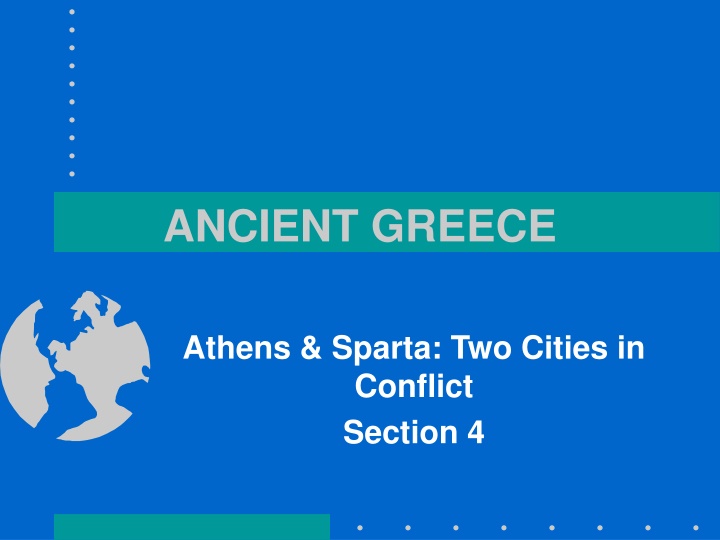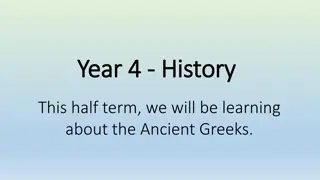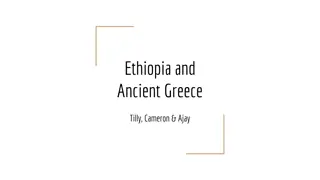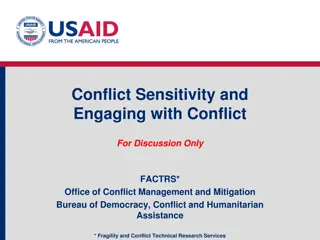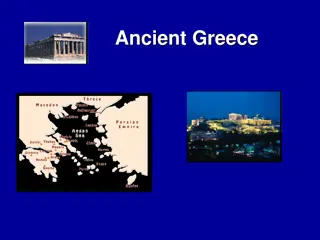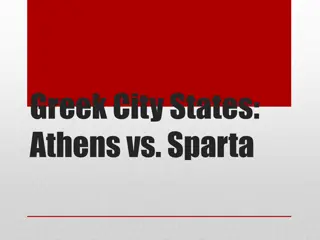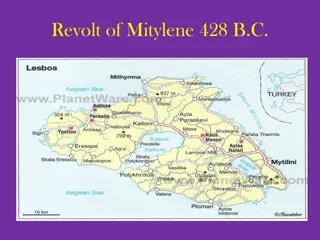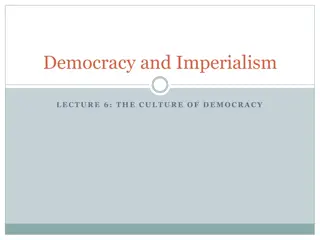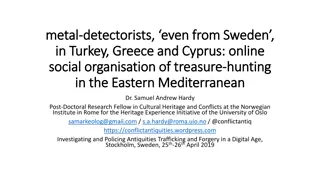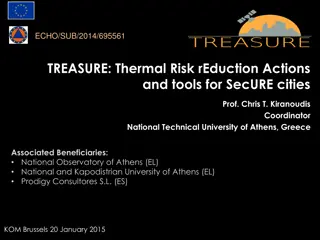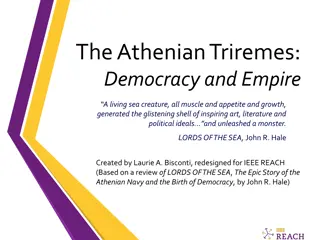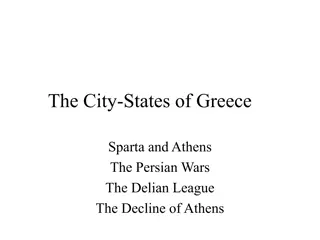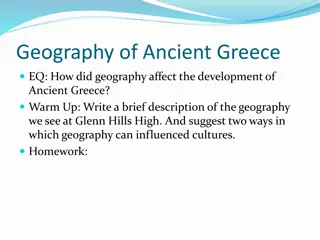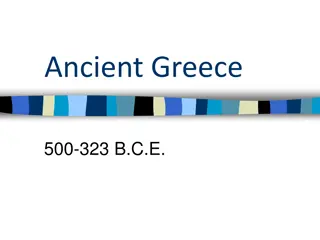Life and Conflict in Ancient Greece: A Tale of Sparta and Athens
Life in Sparta was harsh and cruel, with tough and silent Spartans valuing strength the most. The warlike state subjugated conquered people into helots, leading to a society with more helots than Spartan citizens. Spartan children underwent rigorous training from a young age, with boys expected to endure pain and hardship silently, while women had property rights and engaged in business. The Persian invasion and the subsequent Athenian victory solidified Athens' position as a respected city-state. However, conflicts such as the Peloponnesian Wars arose due to Athens' tribute demands for protection, despite being a democracy.
Uploaded on Sep 27, 2024 | 2 Views
Download Presentation

Please find below an Image/Link to download the presentation.
The content on the website is provided AS IS for your information and personal use only. It may not be sold, licensed, or shared on other websites without obtaining consent from the author.If you encounter any issues during the download, it is possible that the publisher has removed the file from their server.
You are allowed to download the files provided on this website for personal or commercial use, subject to the condition that they are used lawfully. All files are the property of their respective owners.
The content on the website is provided AS IS for your information and personal use only. It may not be sold, licensed, or shared on other websites without obtaining consent from the author.
E N D
Presentation Transcript
ANCIENT GREECE Athens & Sparta: Two Cities in Conflict Section 4
What was life like in Sparta? LIFE WAS HARSH & CRUEL. SPARTANS WERE TOUGH, SILENT, & GRIM. SPARTANS MOST VALUED STRENGTH.
What kind of city was Sparta? IT WAS A WARLIKE STATE. SPARTANS CONQUERED MANY LANDS AND TURNED CONQUERED PEOPLE INTO HELOTS, OR SLAVES.
Spartan city (continued) THERE WERE MORE HELOTS THAN SPARTAN CITIZENS. SPARTANS LIVED IN FEAR OF REVOLT BY THE HELOTS.
What was life like growing up in Sparta? ONLY THE HEALTHIEST CHILDREN WERE RAISED. HEALTHY MALES BECAME SOLDIERS. THEY STARTED TRAINING IN BARRACKS AT THE AGE OF 7.
Spartan life (continued) BOYS WERE EXPECTED TO BEAR PAIN, HARDSHIP AND PUNISHMENT IN SILENCE. THEY WERE KNOWN FOR THEIR SKILL & BRAVERY. WOMEN WERE ALLOWED TO OWN LAND & TAKE PART IN BUSINESS.
What was the Persian invasion? BY 520 B.C., THE PERSIANS GAINED CONTROL OF GREEK COLONIES IN ASIA MINOR. IN 490 B.C., THOUSANDS OF PERSIANS LANDED IN MARATHON, 25 MILES NORTH OF ATHENS.
Persian invasion (continued) THE ATHENIAN SMALLER ARMY ATTACKED WITHOUT WARNING AND DEFEATED THE LARGER PERSIAN ARMY. 6,400 PERSIANS WERE KILLED TO 192 ATHENIANS.
What was the Athenian Empire like after the Persian invasion? ATHENS HAD WON THE RESPECT OF MANY OTHER CITY-STATES. THEY JOINED WITH ATHENS AND SUPPORTED DEMOCRACY.
What were the Peloponnesian Wars? ALTHOUGH ATHENS WAS A DEMOCRACY, IT ASKED OTHER CITY-STATES TO PAY TRIBUTE FOR PROTECTION FROM FUTURE PERSIAN ATTACKS. IT USED THIS MONEY TO BUILD THE PARTHENON.
Peloponnesian Wars (continued) THIS ANGERED THE OTHER CITY-STATES, THEY RESENTED ATHENS POWER AND LOOKED TO SPARTA FOR PROTECTION.
Peloponnesian Wars (continued) IN 431 B.C., ATHENS AND SPARTA WENT TO WAR, WHICH LASTED 27 YEARS. AT THIS TIME, IN THE 400s B.C., ATHENS & SPARTA HAD ABOUT THE SAME MILITARY STRENGTH.
When did Athens fall? EARLY IN THE WAR, ATHENS WAS STRUCK BY A PLAGUE, OR WIDESPREAD DISEASE. IN 5 YEARS, 1/3 OF ATHENIAN PEOPLE DIED FROM IT.
Athens fall ( continued) THEN SPARTA STAGED A BLOCKADE, TO PREVENT FOOD FROM REACHING ATHENS. STARVED & BEATEN, THE ATHENIANS SURRENDED IN 404 B.C..
